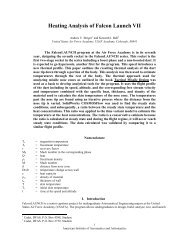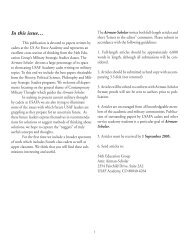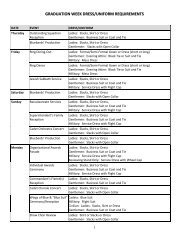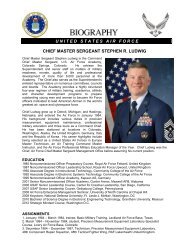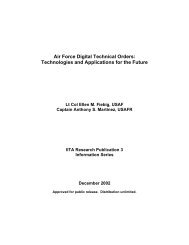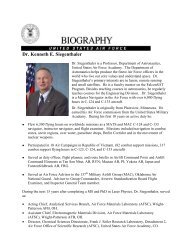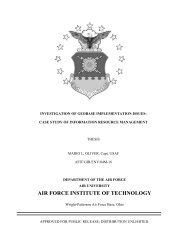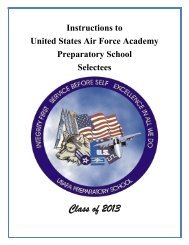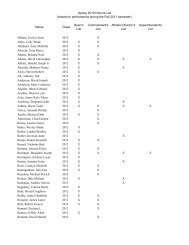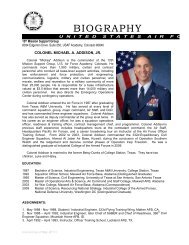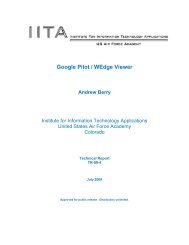the rollback of south africa's biological warfare program
the rollback of south africa's biological warfare program
the rollback of south africa's biological warfare program
You also want an ePaper? Increase the reach of your titles
YUMPU automatically turns print PDFs into web optimized ePapers that Google loves.
internal suppression <strong>of</strong> political dissidents at home, SAMS conducted new<br />
basic research projects and <strong>the</strong> development <strong>of</strong> new chemical and <strong>biological</strong><br />
weapons that might assist.<br />
Maj. Gen. Nieuwoudt, <strong>the</strong> Surgeon General and head <strong>of</strong> SAMS, recruited<br />
Major (Dr.) Wouter Basson, <strong>the</strong> respected young cardiologist and personal<br />
physician <strong>of</strong> P.W. Botha, to head Project Coast. 42 Although Project Coast was<br />
run by <strong>the</strong> military, Basson proved to be a highly successful entrepreneur who<br />
played a key role in defining <strong>the</strong> research and development agenda. He<br />
capitalized on <strong>the</strong> secret nature <strong>of</strong> this unit to establish a number <strong>of</strong> new<br />
projects and as a rationale for acting alone. From <strong>the</strong> start, Basson was a highly<br />
charismatic and effective recruiter who was apt at identifying and enlisting<br />
some <strong>of</strong> <strong>the</strong> most promising and highly skilled medical researchers from <strong>the</strong><br />
military and from <strong>the</strong> larger civilian scientific community. Basson also proved<br />
to be a master manager <strong>of</strong> people. He was able to inspire loyalty and respect<br />
from employees. Many <strong>of</strong> <strong>the</strong>se researchers and scientists joined <strong>the</strong> <strong>program</strong><br />
because <strong>the</strong>y were intrigued by <strong>the</strong> intellectual challenges and opportunities to<br />
participate in path-breaking research in one <strong>of</strong> several related disciplines, e.g.<br />
chemistry, anatomy, and virology. Almost all were Afrikaner South Africans<br />
who shared a sense <strong>of</strong> patriotic duty, a nationalistic zeal for <strong>the</strong> importance <strong>of</strong><br />
<strong>the</strong> work, and a sense that <strong>the</strong>ir research was critical for maintaining national<br />
security. 43<br />
PROJECT COAST (1981-1993)<br />
From 1979 through 1981, <strong>the</strong> State Security Council, led by President Botha<br />
and Malan, and <strong>the</strong> SADF discussed <strong>the</strong> principles that might apply to <strong>the</strong><br />
CBW <strong>program</strong>. It became clear that a <strong>program</strong> to defend against a Soviet CBW<br />
attack could only be built if <strong>the</strong> Soviet <strong>of</strong>fensive <strong>program</strong> was emulated and<br />
<strong>the</strong>n tested. 44 As it became clear that an <strong>of</strong>fensive CBW <strong>program</strong> was to be<br />
developed, discussions began concerning <strong>the</strong> possible uses for such a <strong>program</strong>.<br />
Malan proposed that signs <strong>of</strong> a chemical <strong>warfare</strong> attack in Angola would force<br />
17




